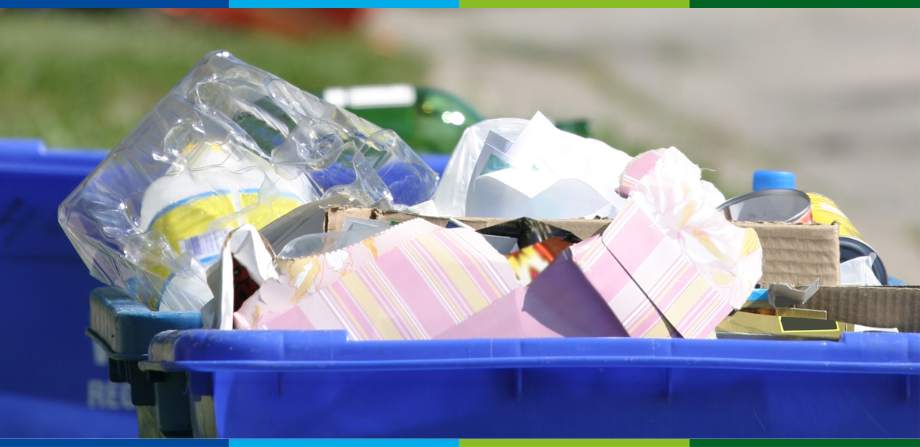- Team Focus | Hugo Mellouli, Head of Sales, Europe
- Introducing SANIBOX®: Enhancing our sustainable clinical waste containment solutions
- Reducing Glove Usage – A New Collaborative Solution
- Manufacturing milestones, sustainability success, and new beginnings
- Across the borders: How NHS Scotland is taking the lead in the race to net zero
Posted on by
From waste to resource: kerbside recycling helps create circular local economy

Do you often wonder what happens to the plastic you put into the recycling bin at home? Where it goes to and what happens to it? What it might be made into next and who might use it?
Read on to discover how kerbside plastic recycling in the north west of England is being reinvented into innovative containers for the medical industry which are helping to keep patients and healthcare professionals safe.
Revolutionising local waste management
Kerbside plastics recycling is the process of collecting plastic waste from households at the kerbside and recycling them into new products. It is a crucial part of the larger recycling effort which reduces environmental pollution, saves energy and resources, and enables households to easily contribute to a cleaner and greener future for all.
Kerbside plastics recycling can also be a powerful tool in creating a circular local economy. In a circular economy, materials are kept in use for as long as possible, and waste is minimised and repurposed. In a circular local economy this is all done in one geographic area.
By repurposing local plastic waste in the same local area local jobs are created, money and carbon are saved, and innovation is fostered. Recycling programmes such as this can help to create a demand for recycled materials, which can encourage manufacturers to find new ways to use these materials. This can lead to the development of new products and technologies, which can help to drive economic growth and build a more sustainable and resilient local economy.
Local plastic waste transformed
Daniels Healthcare is proud to use Post-Consumer Resin (PCR) from kerbside collections in the manufacture of our sustainable products (some are even made from 100% PCR).
Recycling plastic waste into PCR reduces the need for virgin plastic production, which reduces the amount of energy required to extract, refine, and process new plastic.
The PCR we use is sourced locally – made from plastic waste generated by consumers in the north west, processed in the north west, and reinvented into new products in the north west:
- The lorries collect waste from kerbsides in the north west and deliver to the local recycling plant;
- The plastic is washed and shredded;
- The washed and shredded plastic is collected from the recycler and delivered to the processor (also in the north west) who turns them into recycled plastic pellets;
- The pellets are delivered to our manufacturing site in Littleborough and used to make our innovative PCR sharps containers.
This is how PCR promotes a circular economy by reducing waste and creating a closed-loop system for plastic products.
A more responsible future
Unlike some manufacturers which use Post-Industrial Resin (PIR), which comes from raw plastic waste from manufacturing processes, Daniels Healthcare chooses PCR as the waste is already likely to have been recycled – more than once – giving it a lower carbon footprint. While both PCR and PIR have environmental benefits as less material ends up in landfills, PIR is not as effective as it has never been recycled.
The Daniels Healthcare team will continue to pursue ways to incorporate sustainability into products, processes and values. Our rigorous testing and relentless innovation mean that we are pushing the boundaries of sustainable sharps container advances while maintaining value for money and the highest levels of safety for end-users.
Thank you to our partners, customers and all the households who are making the collective effort to recycle, reprocess and support important initiatives such as this.








